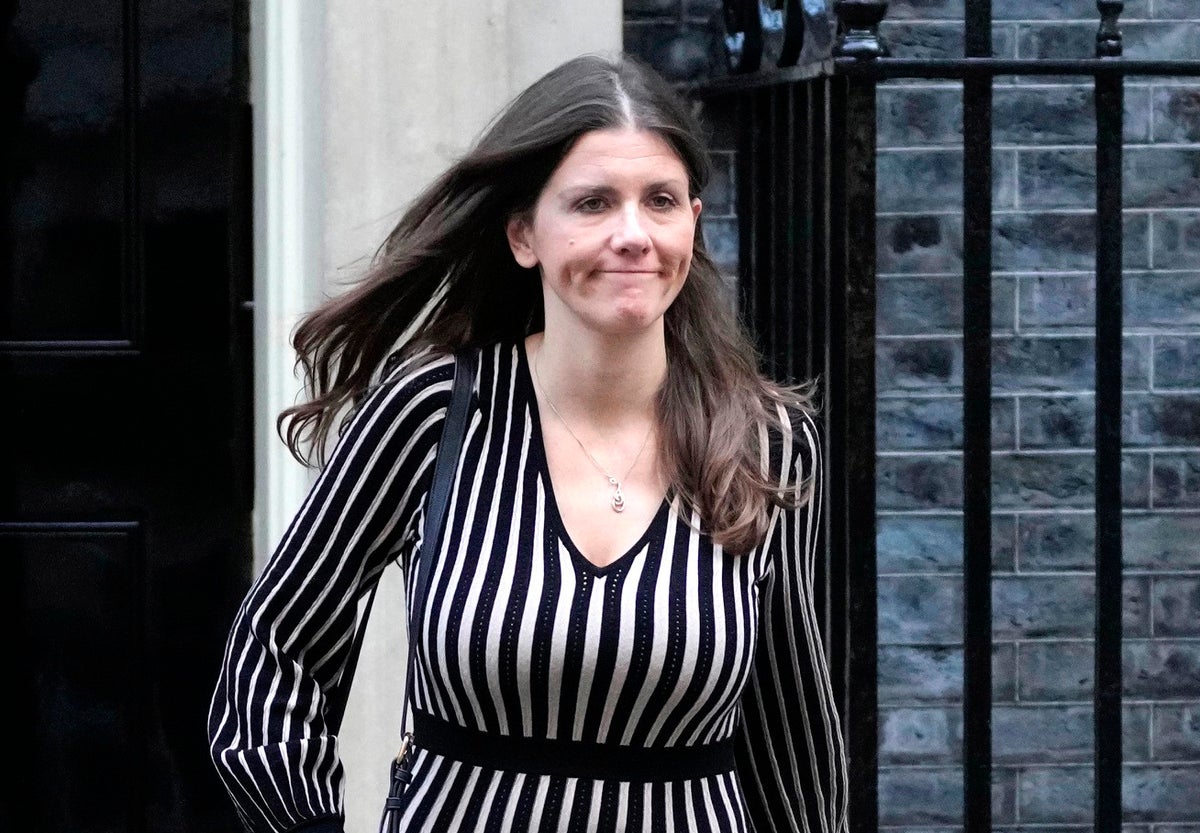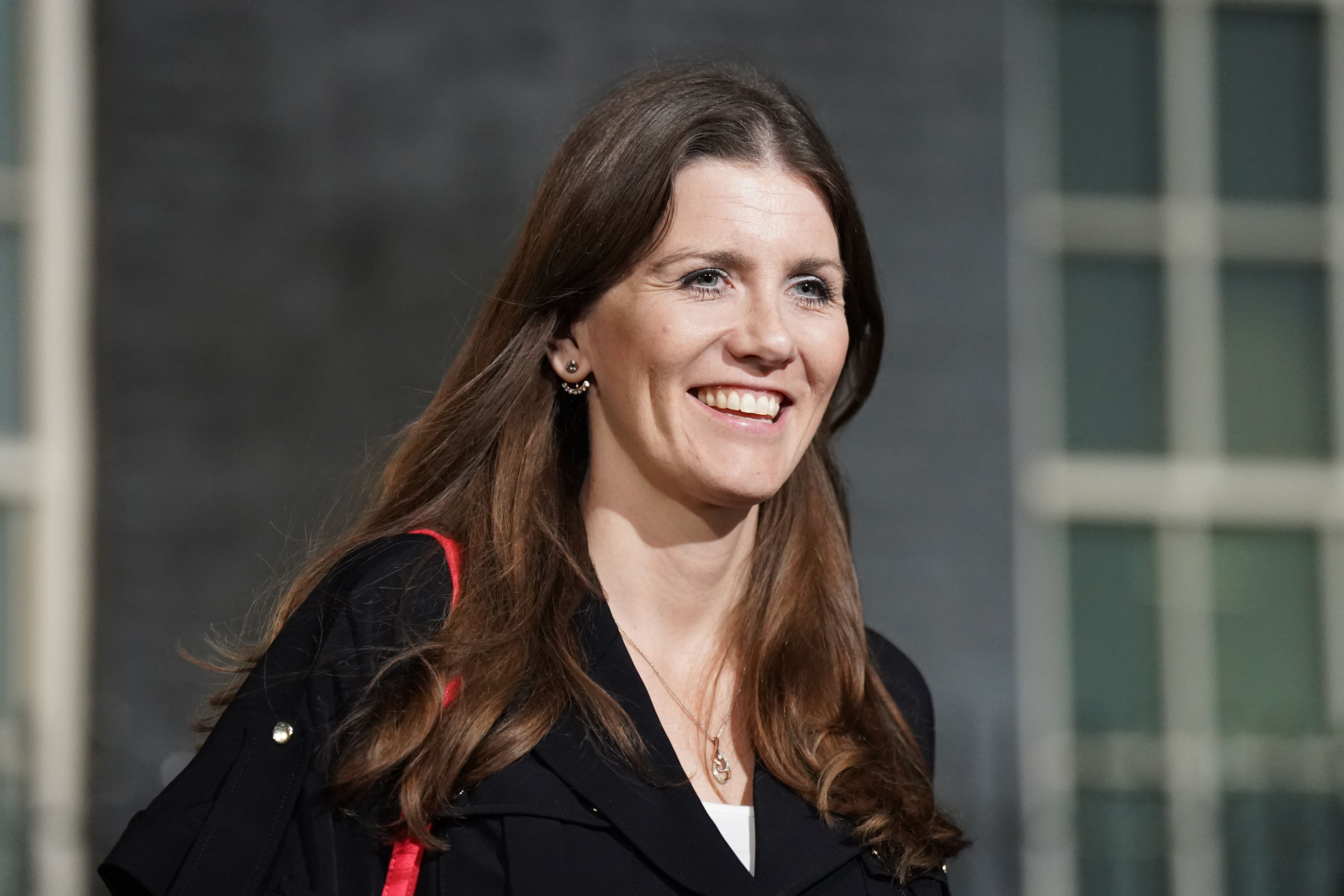
The government has removed measures from its Online Safety Bill which would have forced social media sites to take down material designated “legal but harmful”, in what Labour called a “major weakening” of the legislation.
Some Conservative MPs had previously warned that the axed measures could threaten free speech and could lead to “political censorship”.
Culture secretary Michelle Donelan argued that removing these aspects of the much-delayed bill would help to finally get it “into law”.
But the Samaritans warned the removal of the measures was “a hugely backwards step” and accused the government of “snatching defeat from the jaws of victory” before the bill returns to parliament next week.
Under the original bill’s plans, the biggest platforms – such as Facebook, Twitter and YouTube – would have been compelled to not only remove illegal content, but also any material which had been named in the legislation as legal but potentially harmful.
Instead, platforms will now only be required to remove illegal content, as well as take down any material that is in breach of its own terms of service.
And instead of the ‘legal but harmful’ duties, there will now be a greater requirement for firms to provide adults with tools to hide certain content they do not wish to see – including types of content that do not meet the criminal threshold but could be harmful to see, such as the glorification of eating disorders, misogyny and other forms of abuse.
The government is labelling these three requirements a “triple shield” of online protection, which Ms Donelan insisted to the BBC meant that the bill was “certainly not weaker in any sense”.
Tech firms will also now be required to publish summaries of risk assessments in regard to potential harm to children on their sites, show how they enforce user age limits and publish details of enforcement action taken against them by Ofcom – the new regulator for the tech sector.
The updated rules will also prohibit a platform from removing a user or account unless they have clearly broken the site’s terms of service or the law.
But campaign group Big Brother Watch warned that the government’s “revival of plans to give state backing for social media companies’ terms and conditions ... is utterly retrograde, brushes aside months of expert scrutiny, and poses a major threat to freedom of speech in the UK”.
Julie Bentley, chief executive of Samaritans, described dropping the requirement to remove “legal but harmful” content as “a hugely backward step”, saying: “Of course children should have the strongest protection but the damaging impact that this type of content has doesn’t end on your 18th birthday.
“Increasing the controls that people have is no replacement for holding sites to account through the law and this feels very much like the government snatching defeat from the jaws of victory.”
Shadow culture secretary Lucy Powell said the amendments were a “major weakening” of the bill, adding: “Replacing the prevention of harm with an emphasis on free speech undermines the very purpose of this bill, and will embolden abusers, Covid deniers, hoaxers, who will feel encouraged to thrive online.”
The Centre for Countering Digital Hate (CCDH) also warned that social media sites might feel “off the hook” because of the new focus on user controls “in place of active duties to deal with bad actors and dangerous content”.
The bill is due to return to parliament next week after being repeatedly delayed, and the government hopes for it to become law before the summer recess.

Culture secretary Michelle Donelan defended the decision to drop the “legal but harmful” duties from the bill – saying it was “confusing” and “could have stifled free speech”.
But she insisted that protections for children have been strengthened. Ms Donelan told Times Radio that she said the government was “in essence” introducing “legal but harmful for children” through other provisions in the bill.
“Unregulated social media has damaged our children for too long and it must end,” said Ms Donelan. “We now have a binary choice: to get these measures into law and improve things or squabble in the status quo and leave more young lives at risk.”
The Molly Rose Foundation, a suicide prevention campaign set up by the family of Molly Russell, said it was “disappointed” that the bill had been “watered down”, adding: “Freedom of speech is an important issue but, this isn’t about freedom of speech, it’s about the freedom to live.”
But the group said it accepted the changes if they mean that the bill will finally be passed into law.
The latest changes come in the wake of other updates to the bill, including criminalising the encouragement of self-harm and of ‘downblousing’ and the sharing of pornographic deepfakes – changes which were welcomed by the CCDH campaign group, among others.
The government also confirmed further amendments will be tabled shortly aimed at boosting protections for women and girls online.
In addition, the Victim’s Commissioner, Domestic Abuse Commissioner and Children’s Commissioner will be added as statutory consultees to the bill, meaning that Ofcom must consult them with drafting new codes of conduct it will create that tech firms must follow in order to comply with the bill.
Children’s Commissioner for England, Dame Rachel de Souza, said this would ensure “children’s views and experiences are fully understood”.
“We cannot allow any more children to suffer. The loss of children by suicide, after exposure to hideous self-harm and suicide content, are tragic reminders of the powerful consequences of harmful online material,” she said.
The culture secretary claimed that the rest of the world is “watching and wating” for the UK to deliver its new online safety legislation, with politicians overseas keen to use it as a “blueprint” for their own
“I’ve spoken to many ministers and counterparts across the globe who have said that they are interested in using our legislation as the blueprint for their own,” Ms Donelan told GB News. “It’s been a long time coming. The writing is on the wall now.”







